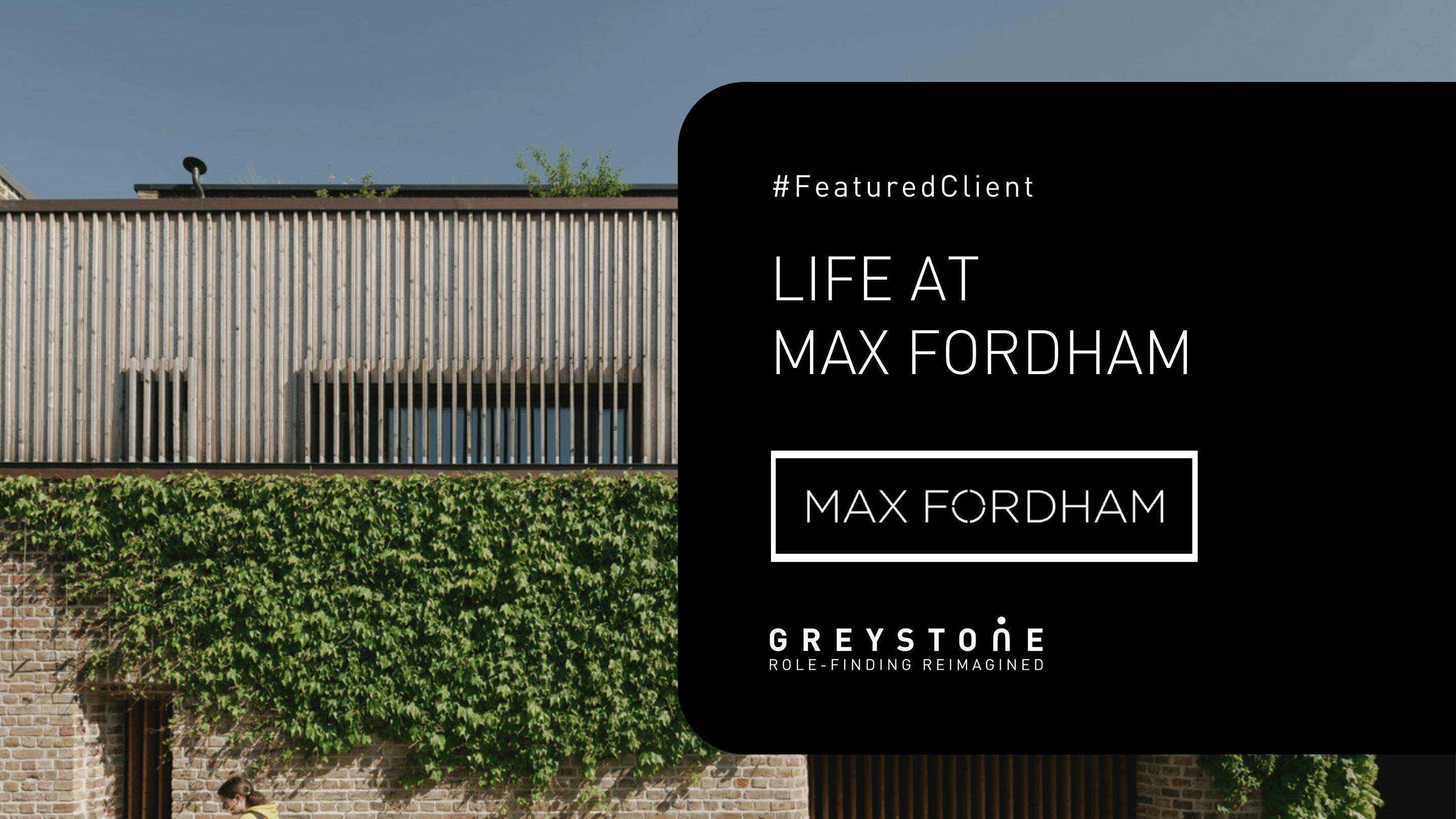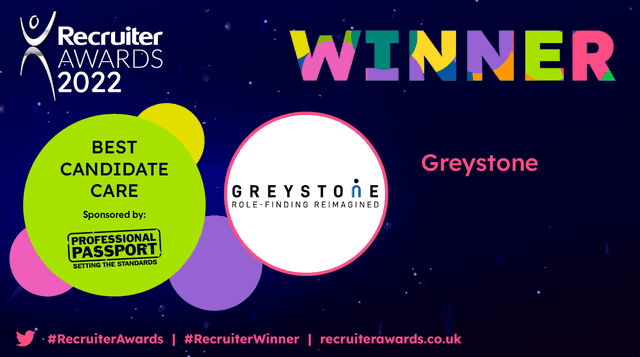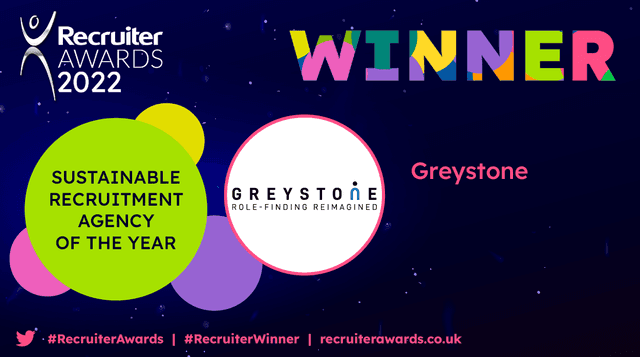
Featured Client: Max Fordham
With deep-rooted values and history of sustainable design, Max Fordham are a building services engineering practice that have an antiquity of innovation and a culture to match.
The firm was founded in 1966 by Max Fordham, at the age of 33. Max had an interesting upbringing and was schooled in the progressive Dartington Hall, which was led by a student government who essentially decided what lessons to do and when to do them. A lot of the work they did was quite physical, mending or fixing things, and he saw this as a bit of an engineering apprenticeship.
Perhaps it was this liberal approach to running the school that led Max to operate his own business as a partnership to encourage shared responsibility and a feeling of ownership. During his life, Max himself said "it's a responsibility-sharing scheme, not a profit-sharing scheme”.
Essentially, as the practice grew, Max decided that he didn’t want a hierarchy; he wanted a partnership. So, he gave away a share of the practice to everyone he worked with so that everyone was an equal partner. This remains in place to this very day, with every member of the Max Fordham team being invited to become a partner in the business after their 4th year.
Much of Max’s life contributed to the way in which he founded his business. After his military service, he went to Trinity College Cambridge and studied natural sciences, where he was introduced to the idea of heating design by one of his tutors. Following a short career working for what was then known as Arup Building Group (now Arup Associates), and based on the idea of thinking about buildings in a more holistic manner, Max Fordham’s practice was born. In their early years, the firm worked on some incredible buildings including Snape Maltings, the conversion of a malt house in to a concert hall; and Alexander Road Estate, which was a 500-home social housing development in Camden. He also worked on projects abroad and negated to pigeon-hole himself in to working on just one type of project.
Now at approximately 250 heads across five UK offices, Max Fordham is a people first business that ensures interest and excitement in their day-to-day work. They choose the projects that they work on carefully, selecting clients, architects and people that value what they do.
Their London office is the largest, within the Rotunda building; a former piano factory that the firm has helped refurbish over the last 40 years. In keeping with Max Fordham’s values, it’s a naturally ventilated, historic building that has been refurbished and kept in use. The four other offices are located in Cambridge, Edinburgh, Bristol and Manchester – all of which were opened between 2001 – 2012. Whilst these offices are separated by distance, the team act as one practice and collaborate across offices on many of their projects.
The business is well-known for working on pioneering design, with a project list that includes the Tate Modern Switch House, The MAXXI in Rome, and The Oxford Centre for Humanities – often winning projects over firms that are thousands strong.
The Culture
Max was a very important character in the business throughout his life and encouraged inclusiveness. Whilst he handed over the running of the business in circa 2000, he would often join the team for drinks and host the team at his home where interesting discussions about engineering were often had. He developed a lot of personal relationships, changed the way buildings in Britain are heated, lit, powered and ventilated more than any other engineer of his generation, and left behind a huge legacy when he passed recently at the age of 88 (as his obituary in The Guardian remarked).
The transparency of the business is one of the key advantages of working for Max Fordham and provides the entire team with a sense of belonging, regardless of their background or gender. Those new to the company know that within four years they will be invited to become a Partner, regardless of their level of experience. The organisation elects representatives to run the business, but the entire practice is privy to discussions that are so often kept behind closed doors in other businesses; the good and the bad. Nothing is hidden or secret, including rates of pay, and the level of trust that this has developed across the company is phenomenal.
There is also an internal drive to keep a diverse balance of men and women, despite the career challenges many women face when starting a family. Max Fordham openly try to retain their women and, whilst not exclusive to their female staff, they offer career breaks where their people can return to the business, instead of having to leave the practice.
An ever-evolving practice, Max Fordham enjoys challenging peoples’ way of thinking and are always looking for opportunities to develop internally. They have a very strong EDI group and affinity groups that have spun out it, which is fantastic. They were also crowned ACE Inclusion & Diversity Champion in 2017. There is always a chance to participate at a social or a business level or in areas of specific interest; and the firm proudly see things through a ‘glass half full’ perspective.
The firm’s unique business model and support structure keeps their staff retention rate very high, even though people are free to move; and we were proudly told that many of those who have left to gain experience elsewhere have returned to the practice over the years. Working in a holistic way, many engineers learn their craft within Max Fordham, on the job, supported by their accredited mentor development scheme as they work towards chartership. Business Administration Teams also have opportunities to advance their careers through professional channels.
A hot topic in this years’ Salary & Trends Report was hybrid working; another area where Max Fordham have been ahead of the game. Being a people business, they have always understood the demands and changes people go through in their personal lives and have therefore always demonstrated understanding by offering flexible working. They’re a sociable practice who, for example, often pay for teams to go out to lunch, and so being in the office will always be a part of the firm’s structure, but they feel that balance is important and will continue to progress naturally to suit their team.
On the subject of socials, the practice has a range of sports teams, a running club, a yoga club, a knitting club, a quiz team and even a band who were crowned ‘Best Band in the Construction Industry’ two years in a row! The band is called Public M&E and they’ve played at prestigious ceremonies, including the Architects Journal Awards.
The Developing Countries Group at Max Fordham works on philanthropic projects in less economically developed countries around the world. They provide engineering expertise on community projects that normally can’t access this kind of assistance, with projects ranging in scale from designing a single house to advising governments on school design.
The Group often work on education and healthcare buildings, addressing fundamental needs such as water, sanitation, and shelter; and their contributions are generally provided pro bono, supported by funding from the practice and the donation of time from staff. They’re often found working on projects with architectural firm Article 25, who are a not-for-profit that does a lot of work on post-environmental disaster and post-war projects.
The firm are keen for their people to be engaged and vocal in what they want, so there is a huge amount of space and freedom to come up with ideas and suggestions. This was actively encouraged when the business was deciding on their values. They took a from-the-bottom-up approach and let their junior team members depict what Max Fordham meant to them. To see how deeply their culture penetrated all the way down to the most recent members of the practice was hugely fulfilling for the team.
Sustainability
Sustainable environmental design was in Max Fordham’s vocabulary well before anyone else realised it was a thing, and has been central to the practice before it was even a term in the industry. In fact, the practice quite literally wrote a book on Environmental Design: An Introduction for Architects and Engineers in the 90s. Max went on to win the Prince Philip's Prize in 2008 for his pioneering of low carbon design.
Looking back, Max Fordham’s projects include the Sir Joseph Banks Building at Kew Gardens in the late 70s, one of the first uses of a ground source heat pump; and Contact Theatre in Manchester in the 80s, which was the first naturally ventilated theatre in the country.
The business has a huge Sustainability Consultancy Team of circa 20 people across the offices, and they’re an industry leader for Passivhaus – an area in which they’ve employed many of the principles as much as 40 years before they actually came to the UK. Spanning outside of traditional pipes and wires, the practice also has specialist teams in acoustics and lighting design, and the firm has won a number of awards relating to sustainability; including most recently a trio of award wins at the CIBSE Building Performance Awards 2022: Public Project of the Year, Consultancy of the Year (51-300 employees), and Building Performance Champion of Champions (now the only business to win this twice!). Their projects have also won the RIBA Stirling Prize twice and they’ve had a project on the shortlist in four of the last five years.
Max Fordham’s own house will leave a lasting legacy, not only because it was built to the Passivhaus standard, but also because the scheme features innovative insulated shutters, which Fordham hoped would become an energy efficiency solution for future retrofit and low-cost housing projects.
In terms of Net Zero, the business has a Net Zero delivery group called ‘MF Net Zero’ who straddle the whole practice and then 50+ net zero carbon champions across the entire firm; however, every engineer that works for Max Fordham has knowledge and input in zero carbon design and sustainability, largely due to the types of projects the company work on. There is little to no interest from the firm in taking on any project that is not sustainable. They’ve also published their own Net Zero Carbon Guide, to help others in the construction industry deliver zero carbon buildings.
Digital Design
Innovators and forward-thinkers, Max Fordham also have a dedicated digital design team of engineers concentrating on BIM, Revit, computational dynamics and modelling. Their acoustics team also have a specialist SoundSpace built into their London office where, essentially, you can immerse yourself into a project, put on a virtual reality headset and be placed within a building that isn’t yet finished to understand how the acoustics sound.
Contact us to find out about opportunities at Max Fordham




